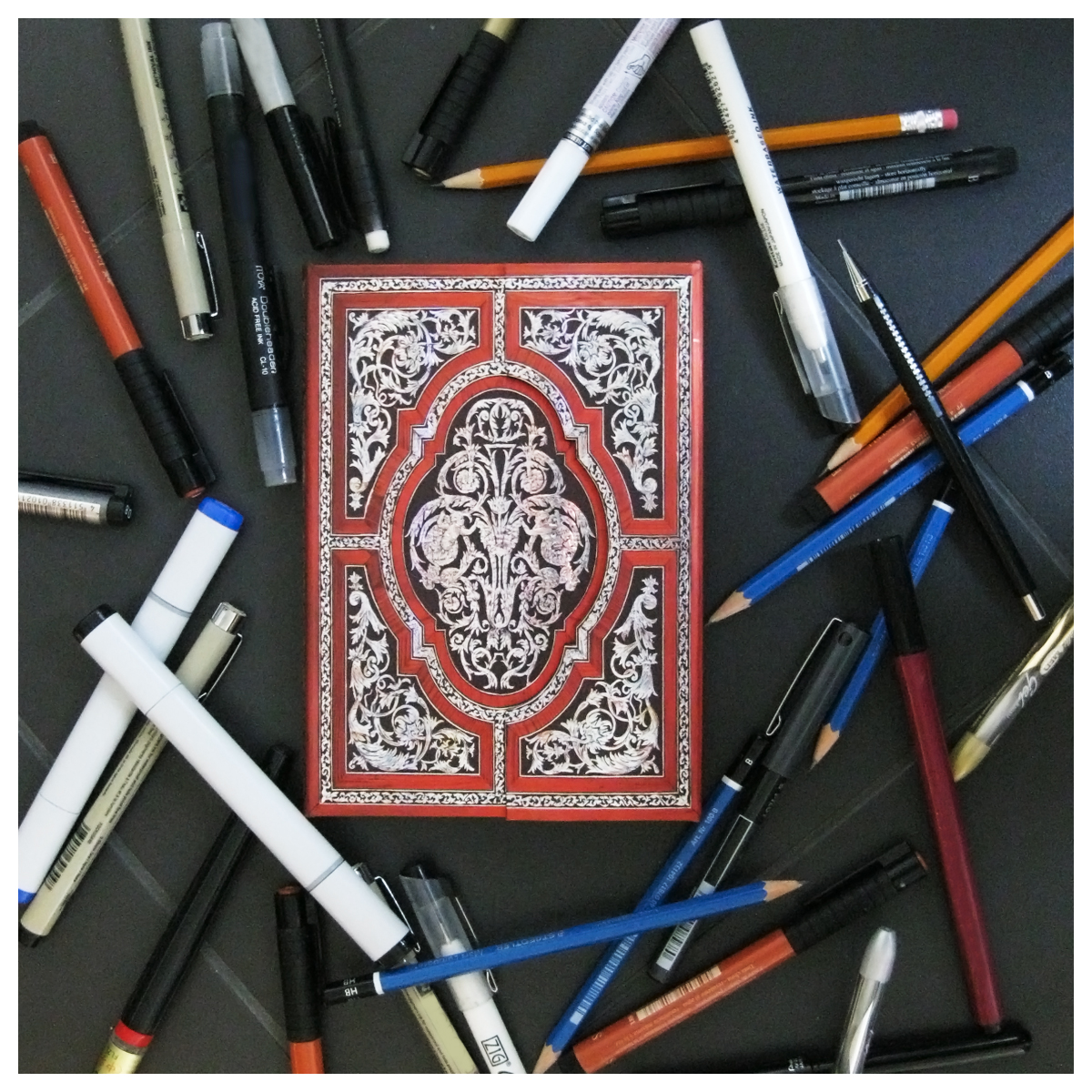A need to express one’s self, a desire to entertain, a call to expose a certain truth – these are all reasons why people take to pen and paper. Whether you believe, as Joseph Epstein opined in a 2002 piece in the New York Times, that “81% of Americans feel they have a book in them,” or if it seems to be less of a certainty that you should become an author, there are no wrong motivators when it comes to getting down to writing. Factors personal, political and everything in between have influenced the world’s greatest writers, and we’ve rounded up ten diverse reasons why some of these accomplished scribes heeded the call to write.
1) Challenge Your Knowledge
Writing takes work. From finding the most accurate word choice to researching a certain subject or time period, you can’t help but gain knowledge as a writer.
“I write to find out how much I know. The act of writing for me is a concentrated form of thought. If I don’t enter that particular level of concentration, the chances are that certain ideas never reach any level of fruition.”
-Don DeLillo
“So why do I write, torturing myself to put it down? Because in spite of myself I’ve learned some things. Without the possibility of action, all knowledge comes to one labeled ‘file and forget,’ and I can neither file nor forget. Nor will certain ideas forget me; they keep filing away at my lethargy, my complacency.”
-Ralph Ellison
2) Conquer a Form of Expression
Like most professionals, writers can be competitive and sometimes the biggest source of this competitive nature is one’s own self.
“I want to write because I have the urge to excel in one medium of translation and expression of life. I can’t be satisfied with the colossal job of merely living. Oh, no, I must order life in sonnets and sestinas and provide a verbal reflector for my 60-watt lighted head.”
–Sylvia Plath
3) Draw Parallels Between Now and Then
Many genres, especially science fiction, are known for making bold predictions about future society based on heightened versions of our current world, but the parallels between “then” and “now” can go back in time, as well. A great example of this is Arthur Miller’s “The Crucible,” which he wrote to help express his thoughts and fear surrounding Senator Joseph McCarthy’s “Red Hunt,” without running the risk of being persecuted as a Communist, himself.
4) Understand Your Own Thoughts
Even if millions of people read a book, the act of writing it was likely highly personal for the author.
“I write entirely to find out what I’m thinking, what I’m looking at, what I see and what it means. What I want and what I fear. Why did the oil refineries around Carquinez Straits seem sinister to me in the summer of 1956? Why have the night lights in the bevatron burned in my mind for twenty years? What is going on in these pictures in my mind?”
-Joan Didion
“I write because I don’t know what I think until I read what I say.”
–Flannery O’Connor
“Because I can’t seem to escape it. It’s a way for me to address and counter my questions about what it means to be human, or, in my case a Dominican human who grew up in New Jersey.”
–Junot Diaz
5) Leave a Legacy
For good or bad, once something is published it cannot be erased. From Homer to Rowling, an author becomes a public figure and this abandonment of anonymity is not something aspiring writers should take lightly.
“Really, the writer doesn’t want success… He knows he has a short span of life, that the day will come when he must pass through the wall of oblivion, and he wants to leave a scratch on that wall — Kilroy was here — that somebody a hundred or a thousand years later will see.”
-William Faulkner
6) Control the Uncontrollable
It is said that people turn to religion for a sense of community and control, and the same can be said for books.
“I write to make peace with the things I cannot control. I write to create fabric in a world that often appears black and white. I write to discover. I write to uncover. I write to meet my ghosts. I write to begin a dialogue. I write to imagine things differently and in imagining things differently perhaps the world will change.”
-Terry Tempest Williams
“You have deep control, and where else can you find that?…You can’t control other people, or your relationships, or your children, but in writing you can have sustained periods where you’re absolutely in charge.”
-Meg Wolitzer
“Why am I compelled to write?… Because the world I create in the writing compensates for what the real world does not give me. By writing I put order in the world, give it a handle so I can grasp it. ”
-Gloria E. Anzaldúa
“That’s why I write, because life never works except in retrospect. You can’t control life, at least you can control your version.”
–Chuck Palahniuk
7) It’s Something to Do
You don’t need some sort of divine inspiration to begin writing. Sometimes it really can be undertaken “just because.”
“I don’t know why I started writing. I don’t know why anybody does it. Maybe they’re bored, or failures at something else.”
–Cormac McCarthy
“Writing is the only thing that, when I do it, I don’t feel I should be doing something else.”
–Gloria Steinem
8) Learn a New Culture
The research you undertake when mapping out a story can forever shape your life, just as the places you live can influence your storytelling.
“I started writing novels while an undergraduate student, in an attempt to make sense of the city of Edinburgh, using a detective as my protagonist.”
–Ian Rankin
9) Help Your Readers, Help Yourself
Writing to better understand your thoughts, trials and tribulations can help pass on to others the knowledge gained from your hard work.
“[Writing is about] enriching the lives of those who will read your work, and enriching your own life, as well.”
-Stephen King
10) Tell a Story!
Coming back to the Joseph Epstein quote that inspired this list, sometimes it’s true that the best reason to write is simply because you have a story that needs telling.
“I just knew there were stories I wanted to tell.”
–Octavia E. Butler
“I just need to tell a story. It’s an obsession. Each story is a seed inside of me that starts to grow and grow, like a tumor, and I have to deal with it sooner or later. Why a particular story? I don’t know when I begin. That I learn much later…”
-Isabel Allende
“If writing were illegal I’d be in prison. I can’t not write. It’s a compulsion.”
-David Baldacci
“You don’t write because you want to say something; you write because you’ve got something to say.”
-F. Scott Fitzgerald
About Paperblanks®: At Paperblanks, we believe that art should have a place in all aspects of life. That’s why we follow the artist’s way in everything we do – creating, crafting and releasing designs we believe have the power to touch people. For more about Paperblanks®, go to our website at paperblanks.com.






